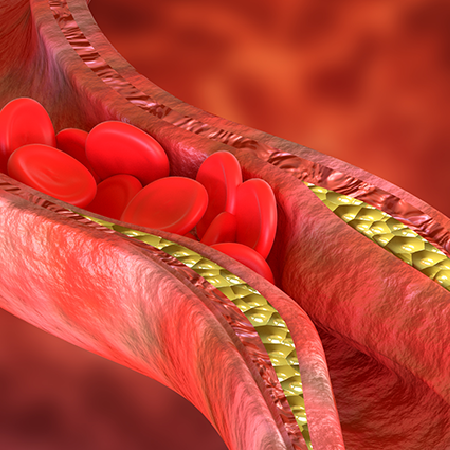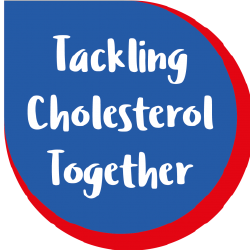Transformation project: Familial hypercholesterolaemia
Background
The NHS Long Term Plan has set an ambition to identify 25% of the predicted familial hypercholesterolaemia (FH) patients in the next five years. Achieving this goal will depend heavily on input from general practitioners.
When an individual is diagnosed with FH, intensive lipid-lowering treatment is crucial to improve cardiovascular outcomes, alongside ensuring that relevant family members are offered testing for the condition. For more on the condition, see box.
About the project
The national transformation project is delivered through the seven regional Genomic Medicine Service Alliances (GMSAs) in England and aims to identify effective strategies to increase detection of patients with FH. In addition, the project aims to support mainstreaming of FH testing, and work with and support primary care to evaluate and transform FH pathways.
This page has been developed to support all healthcare professionals in understanding the identification and care of patients with FH and their families.
About FH
Familial hypercholesterolaemia (FH) is an inherited condition that predisposes affected individuals to extremely high cholesterol levels and premature cardiovascular disease. It is currently under-diagnosed, with only 10-15% of those affected believed to have been identified.
HEART UK has produced these short videos for healthcare professionals on understanding, diagnosing and treating FH.
Pathway and process mapping
The Clinical Pathway Initiative resource is a process map of the clinical pathway for case-finding and testing in FH, and is being developed in partnership between the Genomics Education Programme (GEP) and the Academic Health Science Network (AHSN). It details competencies, mapped educational resources and potential supporting digital solutions, and will be made available here in due course.
Find out more about the Clinical Pathway Initiative here, which includes tools for the development of clinical pathway projects.
Guidance, frameworks and documents
Academic Health Science Network (AHSN)
The Child-Parent Screening Programme is a part of the AHSN Network’s Lipid Management and Familial Hypercholesterolaemia national programme and aims to identify families with FH, supporting the NHS Long Term Plan ambition to reduce cardiovascular disease.
- With parental consent, a child is tested for FH at their routine one-year immunisation visit. A small blood sample is taken using a heel prick capillary test to measure cholesterol. The test is performed at this time because evidence shows that age one is when cholesterol measurement discriminates best between individuals with and without FH, while screening newborns or adults is less effective. In children with a reading above 95 percentile, further genomic testing can be undertaken. If the child receives a diagnosis of FH, at least one of the parents will also be positive for the condition. Siblings and second-degree relatives can also be counselled, screened and treated as necessary.
British Heart Foundation
The British Heart Foundation has an extensive collection of documents, and information on FH for physicians and patients available on their website. This includes service delivery recommendations for cascade testing in relatives of those with an identified gene variant, and barriers to implementation.
HEART UK
HEART UK, in conjunction with colleagues from the UK Paediatric FH Register, have published a statement of care for children with FH. This outlines the optimal patient care pathway and suggests lipid-lowering approaches appropriate for different age groups.
National Institute for Health and Care Excellence (NICE)
The National Institute for Health and Care Excellence (NICE) produced guidelines (CG71) for diagnosis and management of patients with FH, which were last updated in 2017.
Within these guidelines, new recommendations for general practice on case-finding and management within primary care and audit suggestions are of particular relevance:
- For adults, NICE recommends the use of either the Simon Broome criteria or the Dutch Lipid Clinic Network (DLCN) score, as well as the modification to the DLCN score put forward by the Welsh team, which has been shown to increase specificity. These are explained further on the Heart UK FH webpage.
NHS England and NHS Improvement
- To support NICE recommendations, an implementation document with practical advice and flow charts for healthcare professionals has been produced by NHS England, Public Health England, the British Heart Foundation and Heart UK.
- Comprehensive guidelines for lipid management and optimisation, developed in the North of England in partnership with the AHSN, are available; these also include guidance for the assessment of severe hypercholesterolaemia and identification of FH.
- The NHS Accelerating Access Collaborative aims to foster innovation in the NHS through “bringing decision-makers from across the health service together with innovators from industry to accelerate impactful and cost-effective products in a way that hasn’t happened before”. The collaborative supports a variety of programmes, one of which is Lipid Management and Familial Hypercholesterolaemia, delivered through the AHSNs. Within this programme, the Lipid Management Rapid Uptake Product Working Group have developed a NICE-endorsed clinical pathway.
UCLPartners
A dedicated framework for lipid management, including familial hypercholesterolaemia and a supporting 20-minute webinar have been developed by UCLPartners to support primary care teams. Frameworks for other conditions, including atrial fibrillation and hypertension, are also available.
Resources for healthcare professionals
Learn about genetic causes and clinical consequences in this collection of FH resources for physicians
10+ minutes
Case-based online course around how genomic issues may present in primary care, aimed at all health professionals
3 weeks
An introductory e-learning module for primary care practitioners, including those in nursing and pharmacy
60 minutes
A two-module course from North Thames GMSA and the RCGP about the causes and consequences of FH
45 minutes
Modules and qualifications providing a multidisciplinary perspective on genomics in healthcare practice
6+ weeks
A comprehensive e-learning programme for clinicians, including webinars, podcasts and virtual clinics
45+ minutes
An online module to help health professionals develop the skills and knowledge they need to care for families with FH
5 weeks
Resources for patients
For all
- The British Heart Foundation has an extensive collection of documents and information for FH patients available on their website.
- HEART UK, the cholesterol charity, has produced a number of resources for adults and children with FH. These include information on the genetic causes of FH, the value of dietary and lifestyle changes to reduce CVD risk, and the importance of lipid-lowering medication.
For children and young people
HEART UK, in conjunction with colleagues from the UK Paediatric FH Register, have produced several resources, including:
- downloadable leaflets specifically tailored for different age groups, including primary, junior and secondary;
- a factsheet for parents about why their child with FH should be considered for a statin by the age of 10; and
- two animations for children, including:
- a four-minute animated cartoon starring a young girl called Hope, whose mother has FH, and what this means for how Hope lives her life; and
- an animated book that gives information about FH to children between the ages of 6 and 11 and their families. It shows how to draw an FH family tree, how to prepare healthy food charts, and tips for keeping fit. It also suggests ways that children can explain to their classmates about FH in a ‘show-and-tell’ format that is appropriate for different age groups.

Developing people
for health and
healthcare









